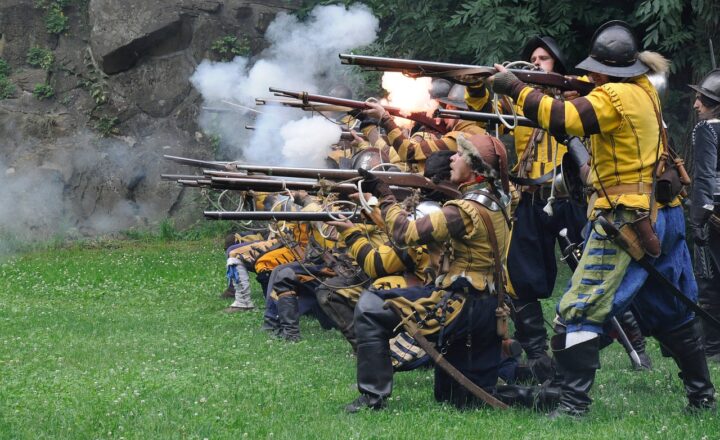
Wars have always shaped the course of human history, leaving indelible marks on nations and civilizations. Whether fueled by ideological differences, territorial disputes, or the quest for resources, conflicts have transformed societies and altered the trajectory of nations. In this article, we will explore some of the most notorious wars in history, analyzing their backgrounds, key events, and far-reaching consequences.
1. The Peloponnesian War (431-404 BCE)
The Peloponnesian War was an ancient Greek conflict fought between the city-states of Athens and Sparta, along with their respective allies. This protracted war, lasting nearly three decades, laid bare the vulnerabilities of the Athenian Empire and showcased Sparta’s military prowess.
Background
The war arose from underlying tensions, including competition for trade routes and power. The growth of Athenian power following the Persian Wars worried the Spartans, who led the Peloponnesian League, a coalition of city-states opposed to Athenian dominance.
Key Events
The war kicked off with the Archidamian War, named after Spartan King Archidamus II. Key events included the Athenian Plague in 430 BCE, which devastated its population, and the disastrous Sicilian Expedition (415-413 BCE), where Athenian forces suffered significant losses.
The war concluded with Sparta achieving a decisive victory in 404 BCE, resulting in the collapse of Athenian democracy and the establishment of a harsh oligarchy known as the Thirty Tyrants.
2. The Hundred Years’ War (1337-1453)
The Hundred Years’ War is another significant conflict, primarily between England and France, that stretched for 116 years, marked by intermittent battles, truces, and territorial disputes.
Causes
Instigated by competing claims to the French throne, the war saw initial English successes, including the famous Battle of Crécy (1346) and the use of longbows, which shifted conventional warfare paradigms.
Major Battles and Developments
– The Siege of Orléans (1428-1429), where the arrival of Joan of Arc galvanized French forces, leading to a turning point for France.
– The Battle of Agincourt (1415), a significant English victory that showcased the effectiveness of long-range archers.
The war ended with a French resurgence, ultimately reclaiming all territory and marking the end of English territorial ambitions in France.
3. The Thirty Years’ War (1618-1648)
Often considered one of the most destructive conflicts in European history, the Thirty Years’ War had deep-rooted religious, political, and territorial motivations, pitting Protestant states against Catholic ones.
Origins
The war began as a conflict within the Holy Roman Empire but quickly escalated as foreign powers, including France and Sweden, intervened. The initial phase was marked by fierce religious strife as Protestant and Catholic factions vied for control.
Consequences
The war decimated populations, with estimates of deaths ranging from 4 to 12 million, primarily through battle, famine, and disease. The Peace of Westphalia in 1648 marked its end, reshaping the political landscape of Europe by recognizing state sovereignty and establishing a framework for international relations.
4. The American Civil War (1861-1865)
The American Civil War is a pivotal moment in both American and world history, characterized by the struggle over slavery, states’ rights, and national unity.
Causes
The underlying discord between Northern abolitionists and Southern states defending slavery culminated in conflicts such as the raid on Harpers Ferry by abolitionist John Brown and the Dred Scott decision. The election of Abraham Lincoln further exacerbated tensions, leading Southern states to secede from the Union.
Major Battles
Crucial battles, including Gettysburg (1863) and Antietam (1862), exemplified the war’s brutality, with many casualties.
The war concluded with the surrender of Confederate General Robert E. Lee in 1865, preserving the Union and leading to the Emancipation Proclamation, which set millions of slaves free.
5. World War I (1914-1918)
World War I marked a profound turning point in world history, igniting a chain reaction of alliances, militarism, and nationalism that ultimately engulfed many nations.
Causes
The assassination of Archduke Franz Ferdinand of Austria-Hungary triggered a crisis among European powers. Countries entangled in alliances were soon drawn into the conflict, leading to a full-scale war.
Impact on Society
The war introduced trench warfare, leading to enormous casualties and changes in warfare technology, including tanks and airplanes. The Treaty of Versailles officially ended the conflict, imposing heavy reparations on Germany and sowing the seeds for future conflicts.
6. World War II (1939-1945)
World War II remains one of humanity’s darkest periods, characterized by total war, genocide, and unprecedented destruction.
Roots of Conflict
Following the grievances from the Treaty of Versailles, nations experienced economic distress, and totalitarian regimes rose, particularly Hitler’s Nazi Germany.
Key Events and Outcomes
The war witnessed significant events, including the invasion of Poland, the Holocaust, and the dropping of atomic bombs on Hiroshima and Nagasaki. The formation of the United Nations marked an effort to prevent future conflicts and maintain peace.
Conclusion
Conflicts shape societies, instilling lessons for future generations. Understanding the complexities of these notorious wars can provide valuable insights into politics, human behavior, and the perpetual struggle for peace.
As we reflect on these historical conflicts, we must remember the cost of war and strive for avenues of diplomacy and resolution to prevent future escalations into violence.







